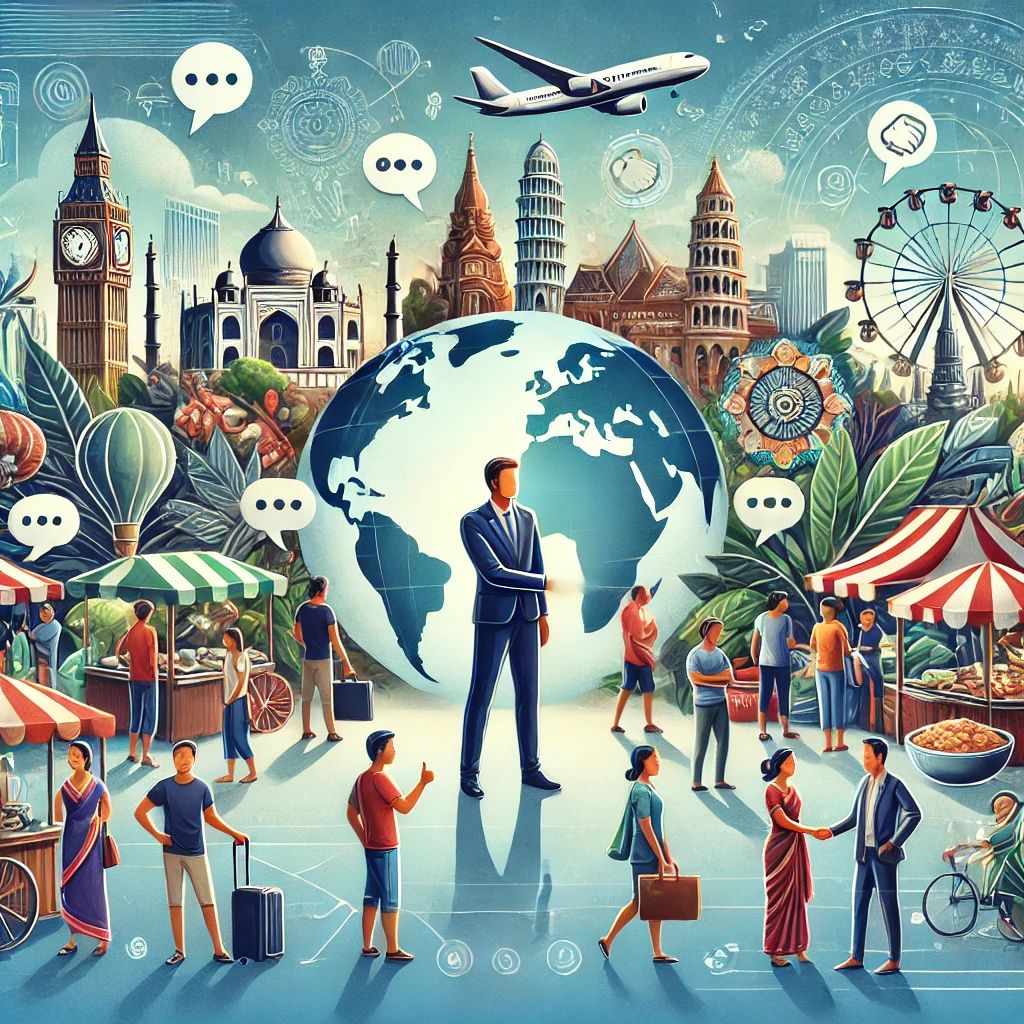
Why Communication and Negotiation Skills Matter
Strong communication and negotiation skills are essential in both personal and professional life. They help you express your ideas clearly, understand others' perspectives, and navigate complex situations with ease. One of the best ways to develop these skills is through travel. Whether you're exploring a new culture, meeting people from different backgrounds, or handling unfamiliar situations, travel presents numerous opportunities to improve your ability to communicate effectively and negotiate successfully.
1. Exposure to New Cultures Enhances Communication
Traveling exposes you to different languages, customs, and ways of life, which can enhance your communication skills:
Non-verbal communication: In places where you don’t speak the language, you’ll rely on gestures, facial expressions, and body language to communicate. This experience improves your ability to read and use non-verbal cues, which are crucial for effective communication.Learning to listen actively: Traveling teaches you to listen carefully, especially when communicating across language barriers. Active listening helps you better understand others and respond appropriately, a key skill in both communication and negotiation.Adaptability in communication styles: Each culture has its own communication style. By interacting with people from different backgrounds, you’ll learn to adapt your approach based on the context, improving your flexibility and effectiveness in conversations.2. Negotiating While Traveling Improves Confidence
From haggling in markets to negotiating prices with taxi drivers, travel offers plenty of opportunities to sharpen your negotiation skills:
Honing persuasion techniques: Negotiating while traveling often involves persuading others to agree to a price or service that benefits both parties. This strengthens your ability to present your case persuasively, a vital skill in professional negotiations.Building confidence: Successfully negotiating in unfamiliar environments builds your confidence, which is essential when facing challenging situations in daily life. The more you practice, the better you become at negotiating.Managing emotions: Negotiations can be emotional, especially when there’s a language or cultural barrier. Travel teaches you to stay calm, patient, and focused on the outcome, even in stressful situations.3. Handling Unexpected Situations Develops Problem-Solving Skills
Travel is filled with unexpected challenges—missed flights, lost luggage, or language barriers—that require quick thinking and problem-solving:
Staying calm under pressure: Traveling often puts you in situations where things don’t go as planned. Learning to stay composed while finding solutions to these problems improves your ability to handle negotiations calmly and effectively.Creative problem-solving: When faced with unfamiliar circumstances, you’re forced to think creatively and outside the box. This creativity translates into improved negotiation strategies, where thinking on your feet can make all the difference.4. Building Relationships with Diverse People Enhances Empathy
One of the keys to successful communication and negotiation is understanding the other person’s perspective:
Learning empathy through cultural exchange: Traveling gives you a chance to meet people from diverse backgrounds, helping you develop empathy by understanding different viewpoints. This empathy is crucial when negotiating, as it allows you to find common ground and work towards a mutually beneficial outcome.Developing interpersonal skills: The more you interact with people from various cultures, the better you become at building rapport, which is essential for effective communication and negotiation. Establishing trust and goodwill helps you navigate even the most difficult conversations.5. Language Barriers Encourage Patience and Clarity
Communicating with people who don’t speak your language or have limited English skills forces you to simplify and clarify your message:
Being clear and concise: Travel teaches you to be direct and clear in your communication, which is a valuable skill in both everyday conversations and high-stakes negotiations. Learning how to communicate your point without confusion helps prevent misunderstandings.Patience in communication: Dealing with language barriers requires patience, especially when conversations are slow or difficult to understand. Patience is equally important in negotiations, where rushing or pressuring can derail the process.6. Navigating Different Social Norms Builds Adaptability
Each culture has its own social norms, and adapting to these while traveling is a key part of developing communication skills:
Respecting cultural differences: Understanding and respecting different social norms helps you become a more effective communicator. It allows you to adjust your behavior and speech based on the cultural context, which is important when negotiating with people from diverse backgrounds.Flexibility in approach: Travel teaches you to be flexible in your communication style, whether you're adjusting to a formal business setting or a more casual interaction. This adaptability is invaluable when navigating negotiations in different contexts.7. Learning to Bargain Enhances Practical Negotiation Skills
In many parts of the world, bargaining is a common practice in markets and shops:
Understanding negotiation dynamics: Bargaining helps you understand the basic principles of negotiation, including when to push for a better deal and when to settle. This knowledge is useful in both personal and professional negotiations.Practicing compromise: In negotiations, compromise is key. Learning when to give in and when to stand firm helps you develop the ability to negotiate successfully while maintaining positive relationships.Conclusion: Travel as a Tool for Developing Communication and Negotiation Skills
Travel offers countless opportunities to practice and improve your communication and negotiation skills. From interacting with people from different cultures to navigating unexpected challenges, the experiences you gain while traveling can significantly enhance your ability to communicate clearly, empathize with others, and negotiate effectively. Whether for personal growth or professional success, these skills are invaluable, and travel is a powerful way to develop them.
The article was prepared by Matt Lowery.



